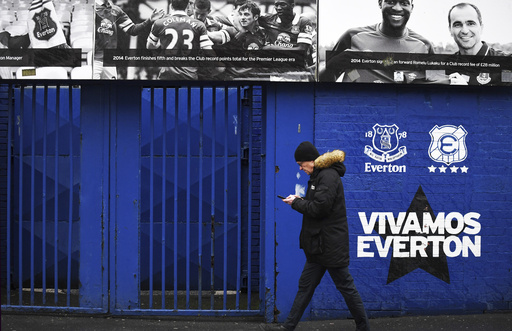Half of the clubs in the Premier League are now under majority American ownership following the completion of a 98.8% acquisition of Everton by the Friedkin Group, based in Texas. This significant change marks the end of Farhad Moshiri’s tumultuous eight-year term as the club’s major stakeholder. The purchase of Everton, a historic English football club, joins the Friedkin’s diverse investment portfolio, which also includes the Italian club, Roma. Though the financial specifics of the deal were not disclosed, British media outlets estimate its value to be over 400 million pounds (approximately $500 million).
The Friedkin Group is led by Dan Friedkin, whose net worth is reported at $6.4 billion by Forbes, alongside his son Ryan. The group has varied investments in sectors including automotive, entertainment, hospitality, and sports, having initially found success in distributing Toyotas across Texas.
Expressing pride in the acquisition, Dan Friedkin remarked, “I take immense pride in welcoming one of England’s most historic football clubs to our global family. Everton represents a proud legacy, and we are honored to become custodians of this great institution.” Everton has a storied history as a nine-time English champion, but the club is currently facing a challenging period, having not secured a major trophy since 1995 and fighting relegation in recent seasons. As it stands, Everton is in 16th place out of 20 teams this season.
With this latest takeover, the English Premier League now features a total of ten teams with American owners. These include Arsenal, Aston Villa, Bournemouth, Chelsea, Fulham, Crystal Palace, Ipswich, Liverpool, and Manchester United, while Manchester City has minority U.S. investors through Silver Lake. Although Leeds and Burnley, which also have U.S. ownership, were relegated recently, they appear to be on a successful path toward promotion from the Championship this season, currently sitting in second and third place, respectively.
Moshiri’s reign, which began when he sold his Arsenal share to invest in Everton in 2016, is marred by a series of missteps—including the expenditure of substantial amounts on player acquisitions, cycling through eight permanent managers, and placing the club into a state of financial disarray. This financial instability resulted in two separate points deductions for the team last season due to excessive spending practices. Moreover, the club’s finances took a hit when it announced in March 2022 that it would terminate its sponsorship agreements with firms linked to Russian businessman Alisher Usmanov, a partner of Moshiri, following sanctions imposed after Russia’s invasion of Ukraine.
As Moshiri exits, Everton is gearing up to vacate its long-standing home at Goodison Park, with plans to transition to a new, state-of-the-art stadium at Bramley-Moore Dock by the end of the current season. Moshiri described the sale as “the best outcome for the club and its future success.” He expressed a sense of accomplishment in achieving a new sporting department and stabilizing the club’s finances, assuring fans of a hopeful outlook as he passes the reins onto the new ownership. “I now hand over to new owners confident in the outlook for the club and that our incredible fans will see the success on the pitch that they so thoroughly deserve,” he stated.
However, fans may harbor some reservations about the Friedkin Group, as they have remained silent since their acquisition of Roma four years ago. Their management decisions, including the dismissal of beloved former captain Daniele De Rossi earlier this season, have left some supporters dissatisfied.
The Friedkin Group initially struck a deal in principle to purchase Moshiri’s stake in June, but talks were suspended the following month. Everton then engaged with American businessman John Textor, who claimed to have an exclusivity agreement, contingent on selling his share in Crystal Palace. A previous attempt by 777 Partners to acquire Everton failed due to concerns about the firm’s financial viability.
Marc Watts, the newly appointed executive chairman, acknowledged the challenges facing the club, stating, “We understand the club has faced significant challenges on and off the pitch for several years. That’s why our immediate priority is stabilizing the club and improving results on the pitch.”
The Friedkin Group has made an undisclosed financial commitment to ensure the new stadium’s completion, reclassifying much of Everton’s debt as equity, aiming for repayment or refinancing on terms that will stabilize the club. Their goals include enhancing the men’s first-team squad through careful investment and bolstering Everton’s reputation as a notable institution in global football. The future of manager Sean Dyche, who has held the position for nearly two years, is unclear, particularly if the new management opts for a new direction.


